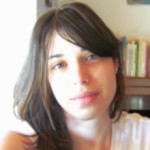Traduzioni inedite da Wallace Stevens.
***
ANEDDOTO DEL BARATTOLO
Posizionai un barattolo nel Tennessee.
Era rotondo, sopra una collina.
Ciò fece sì che la boscaglia incolta
circondasse la collina.
La boscaglia si sollevò fino ad esso,
e le si distribuì intorno, non più incolta.
Il barattolo era rotondo sulla terra
e alto, di una certa portata aerea.
Ottenne il dominio di tutto.
Il barattolo era grigio e spoglio.
Non sapeva di uccello o di cespuglio,
come del resto niente in Tennesse.
*
ANECDOTE OF THE JAR
I placed a jar in Tennessee,
And round it was, upon a hill.
It made the slovenly wilderness
Surround that hill.
The wilderness rose up to it,
And sprawled around, no longer wild.
The jar was round upon the ground
And tall and of a port in air.
It took dominion everywhere.
The jar was gray and bare.
It did not give of bird or bush,
Like nothing else in Tennessee.
***
IL LUOGO DEI SOLITARI
Sia il luogo dei solitari
un luogo di perpetua oscillazione.
Che sia in mezzo al mare,
sopra uno scuro mulinello verde,
o sulla spiaggia, non deve
esserci interruzione di movimento,
o del rumore del movimento,
del rinnovo del rumore
e sua multiforme continuazione;
e, soprattutto, del movimento del pensiero,
della sua mai stanca ripetizione,
nel luogo dei solitari, perché sia
un luogo di perpetua oscillazione.
*
THE PLACE OF THE SOLITAIRES
Let the place of the solitaires
Be a place of perpetual undulation.
Whether it be in mid-sea
On the dark, green water-wheel,
Or on the beaches,
There must be no cessation
Of motion, or of the noise of motion,
The renewal of noise
And manifold continuation;
And, most, of the motion of thought
And its restless iteration,
In the place of the solitaires,
Which is to be a place of perpetual undulation.
***
TÈ AL PALAZZO DI HOON
Non meno perché in porpora scendevo
il giorno occiduo per quella che chiamate
l’aria più solitaria, non meno ero me stesso.
Cos’era quel balsamo che tergeva la mia barba,
cosa quegli inni che mi ronzavano nelle orecchie,
quelle maree che mi passavano attraverso?
Il balsamo dorato pioveva dalla mia mente,
le orecchie ripetevano gli inni che sentivano.
Io stesso ero la bussola in quel mare:
ero il mondo che percorrevo, e tutto quello che vedevo,
sentivo o percepivo non veniva che da me stesso;
e lì ritrovavo me stesso più veramente e più strano.
*
TEA AT THE PALAZ OF HOON
Not less because in purple I descended
The western day through what you called
The loneliest air, not less was I myself.
What was the ointment sprinkled on my beard?
What were the hymns that buzzed beside my ears?
What was the sea whose tide swept through me there?
Out of my mind the golden ointment rained,
And my ears made the blowing hymns they heard.
I was myself the compass of that sea:
I was the world in which I walked, and what I saw
Or heard or felt came not but from myself;
And there I found myself more truly and more strange.
***
L’UOMO DI NEVE
Bisogna avere una mente d’inverno
per scrutare il gelo e i rami dei pini
incrostati di neve;
e aver avuto freddo a lungo
per i ginepri coperti dal ghiaccio,
gli abeti ruvidi nel brillio lontano
del sole di gennaio; e non sentire
una qualche tristezza nel suono del vento,
nel suono delle poche foglie,
che è il suono della terra
attraversata dallo stesso vento
che soffia ora, in questo luogo spoglio,
per chi ascolta, che ascolta nella neve
e vede, essendo egli stesso nulla,
nulla che non sia lì, e il nulla che è.
*
THE SNOW MAN
One must have a mind of winter
To regard the frost and the boughs
Of the pine-trees crusted with snow;
And have been cold a long time
To behold the junipers shagged with ice,
The spruces rough in the distant glitter
Of the January sun; and not to think
Of any misery in the sound of the wind,
In the sound of a few leaves,
Which is the sound of the land
Full of the same wind
That is blowing in the same bare place
For the listener, who listens in the snow,
And, nothing himself, beholds
Nothing that is not there and the nothing that is.
Maria Borio è nata nel 1985 a Perugia. È dottore di ricerca in letteratura italiana contemporanea. Ha pubblicato le raccolte Vite unite ("XII Quaderno italiano di poesia contemporanea", Marcos y Marcos, 2015), L’altro limite (Pordenonelegge-Lietocolle, Pordenone-Faloppio, 2017) e Trasparenza (Interlinea, 2019). Ha scritto le monografie Satura. Da Montale alla lirica contemporanea (Serra, 2013) e Poetiche e individui. La poesia italiana dal 1970 al 2000 (Marsilio, 2018).

